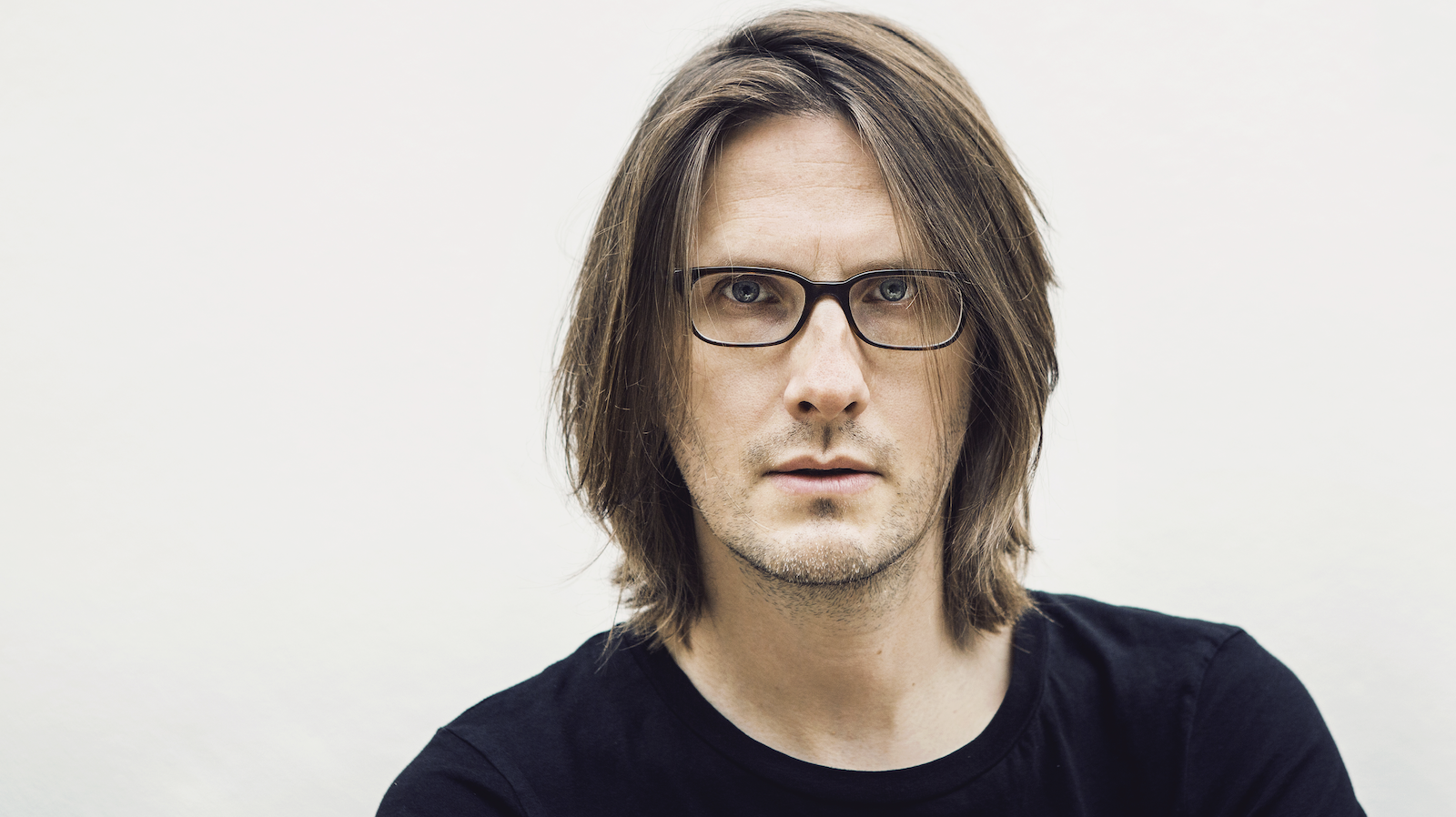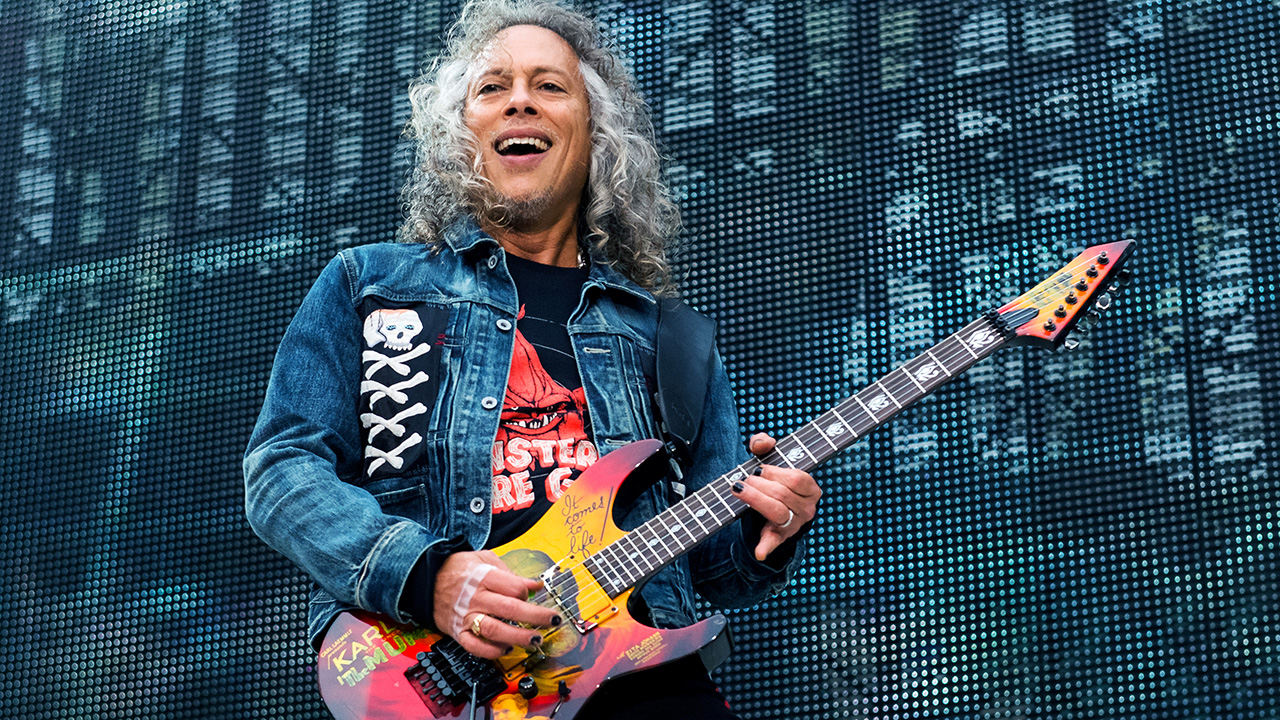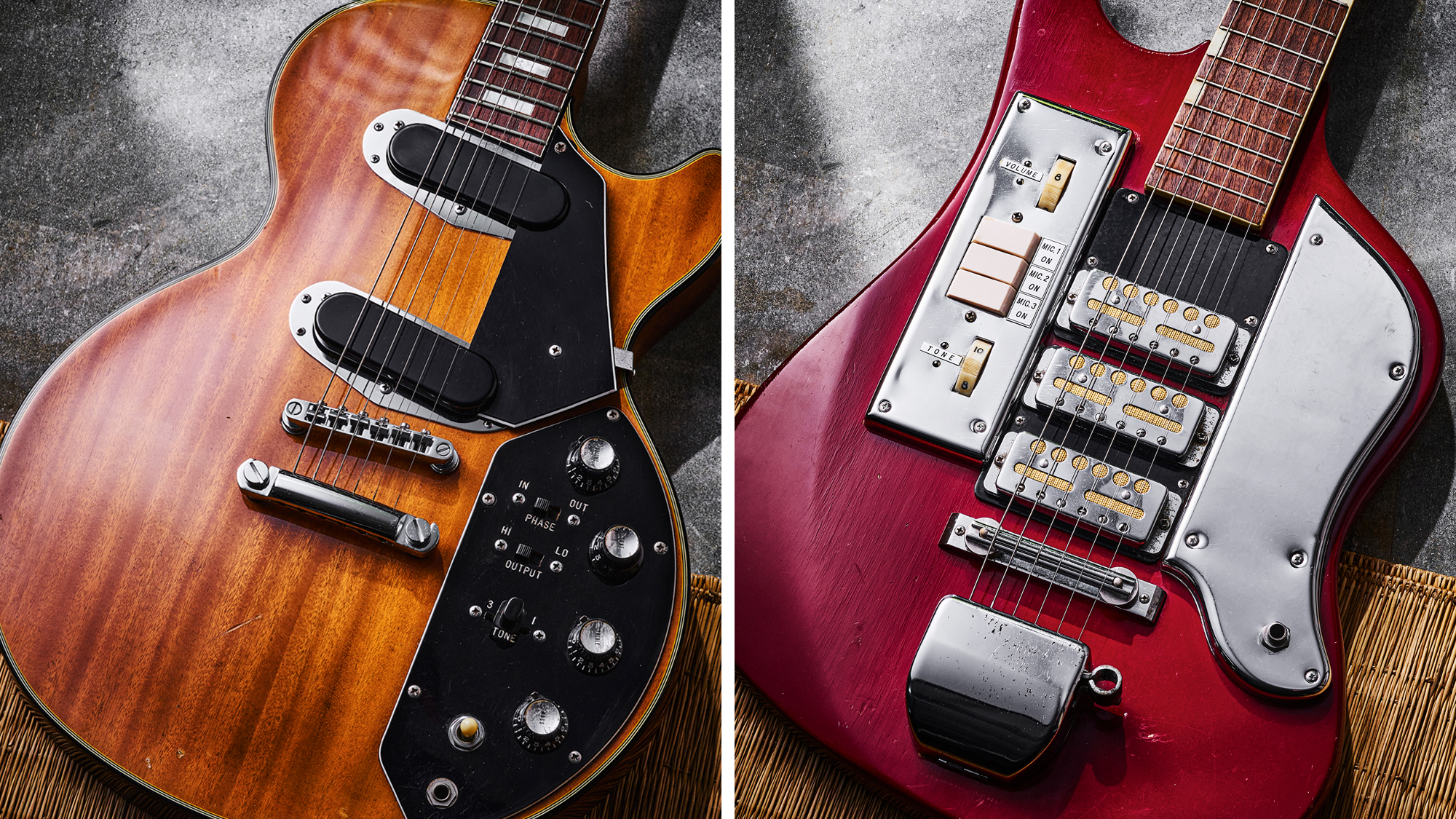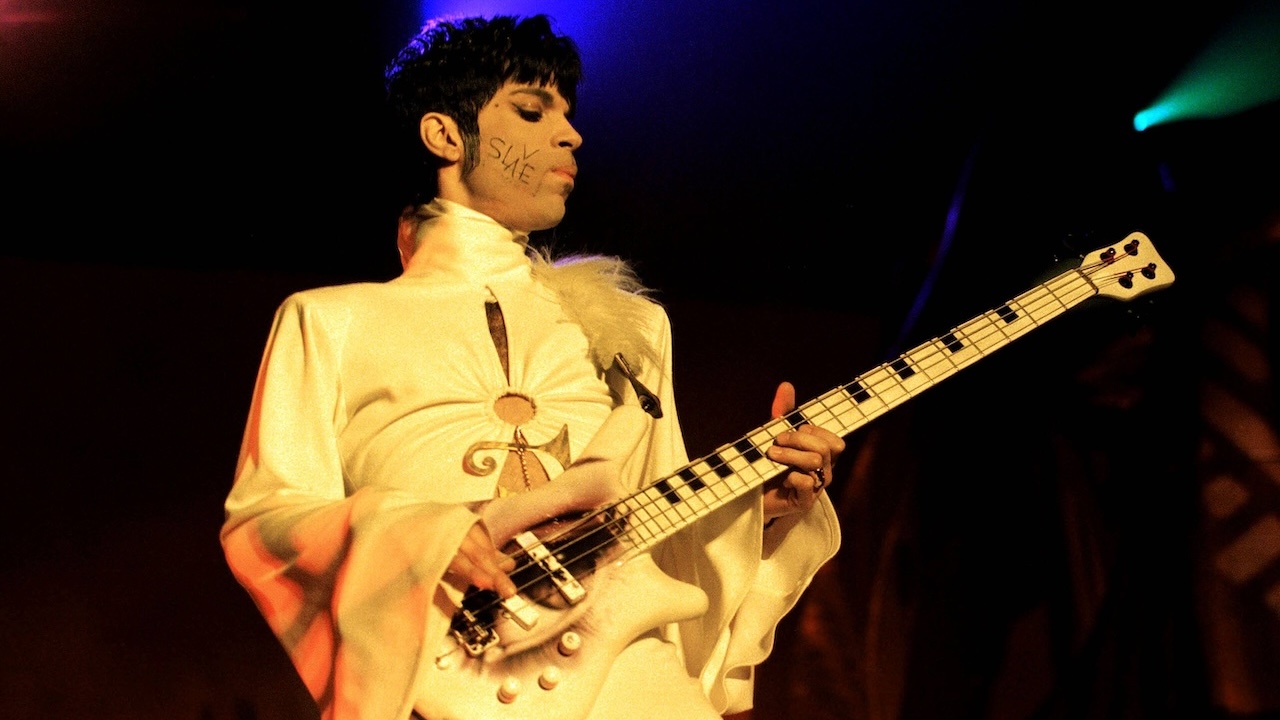Steven Wilson: “One of the greatest tragedies of the 21st century is that rock music – particularly the guitar – hasn’t really managed to reinvent itself”
For most artists with over 50 albums to their name, the idea of breaking new ground might seem outlandish, if not outright impossible. For prog god Steven Wilson, though? Well, it’s a goddamn piece of cake

Though he’s best known as one of the most revolutionary string-splitters in prog-rock history (thanks in no short part to his tenure fronting Porcupine Tree), Steven Wilson has his headstocks dipped deep in a myriad of genre-disparate pots. Take for example his sixth solo album – The Future Bites, hot off the presses via Universal – which blends with Wilson’s signature serpentine fretwork an array of glitchy and glittery synths, keyboard solos and dance beats.
In many ways, The Future Bites is a highly conceptual effort. Sonically, it explores a realm of contemporary pop music sometimes minimalist, and sometimes absolutely bursting at the seams with captivatingly convoluted disarray. Thematically, it explores how technology has both benefitted and hindered the progression of modern society – it invites us on a critical journey through, as a press release informs us, a world where “ongoing, very public experiments with nascent technology on our lives take place constantly; where clicks and Tiks have become more important that human interaction.”
It’s a major stylistic departure for Wilson – for starters, guitars are often not the focal point of a song, but rather ancillary to these twisting and twining labyrinths of synthetic melody – but one the 53-year-old Londonite was ecstatic to dive into.
Ironically, given the album’s themes, Wilson caught up with Australian Guitar to talk about The Future Bites via… Believe it or not… Technology! A Zoom call, of all things! What’s next – telepathically sending us emoji over 5G wavelengths!? SAY IT AIN’T SO, STEVEN!
How did you want to flex your creative muscles on this record?
When I started writing this record, I became conscious that my previous records, in their own way, had all been homages to the past. Hand. Cannot. Erase. was an homage to conceptual ‘70s rock music; To The Bone was an homage to experimental pop in the ‘80s… So this time, I went, “Y’know what? No. I want to make an album that sounds like it could only be made now!” And I think that’s what I’ve achieved. Part of that was being quite open-minded, I think.
I worked with a great producer on this album, David Kosten, and he was playing me some contemporary pop music – music I wouldn’t normally listen to, but very inspiring because of the production techniques. Some of the sonics on some of those records are just… Artists like Billie Eilish, for example, who my two daughters listen to – I hadn’t really concentrated on her music in the past, but when you really listen to those records, the production is just amazing – and definitely very fresh and very, very much of the now. So I think there was a conscious decision to try to do something which wouldn’t be so easy to dismiss as nostalgic, or generic in any way. It’s a very eclectic record, and I think that’s interesting because it’s difficult to put a record like this into any particular genre. But I like that. It’s hard to sell a record like this, but I think that ultimately shows its quality in a sense.
I love that you’re learning all these new techniques from artists born decades after you started making music.
When you’re young, you’re always listening to music made by people that are much older than you. But as you get older, you inevitably end up listening to music made by people much younger than you. I’m 53 now, so a lot of the music I listen to is made by people that are younger than me. And y’know, one of the most magical things about music is its ability to constantly evolve and constantly reinvent itself – and that is predominantly the domain of younger people, who perhaps don’t have the weight of knowledge; they don’t know or care about all the history of rock music. Sometimes I wish I didn’t have that, because it’s very easy to end up pastiching things that you love, or wear your influences too obviously on your sleeves.
Get The Pick Newsletter
All the latest guitar news, interviews, lessons, reviews, deals and more, direct to your inbox!
So on this album, it was a question of trying to get out of my comfort zone, listening to music that I wouldn’t normally listen to, made by much younger musicians – music that didn’t have any sort of commonality between my own music, and music that could make me think about what I could be doing in different ways. My comfort zone is down that sort of conceptual rock rabbithole, post-Pink Floyd, whatever it is. I’ve done that for most of my career – and I’ve made a lot of records that I’m very proud of, but I think I was getting a bit too complacent towards the end of the last decade. I needed to trying making something that felt more edgy, more contemporary, and could stand in its own right as a record made in 2020.
How did that influence your role as a guitarist?
I ended up playing almost all of the guitar myself – which again, is quite unusual for me. Since the days of Porcupine Tree, I’ve tended to rely on other guitar players, and I’ve had some amazing players work on the past few records. But this time around I played most of the guitar myself, because I guess I wanted more of a ‘sound design’ aesthetic going on – I didn’t necessarily want those epic, virtuosic guitar solos – which I love, by the way – I’ve just already done all of that. This time around, if you listen to some of the guitar solos – for example, “Personal Shopper” or “Eminent Sleaze” – they’re very angular, they’re quite abstract, and they’re more about the sound design than the notes.
I think the beautiful thing about the guitar is that it is an endlessly adaptable instrument. It’s a shame that you don’t hear a lot of guitar in modern pop music. If I do hear a guitar, it’s been so processed, quantised, sampled, beat-detected and glitched up that it doesn’t sound like a guitar anymore – but I still believe in the possibilities of the guitar. So I approached it in a different context – a more electronic context – finding a way to incorporate the guitar into that very different musical vocabulary by using different processing techniques. I’m really proud of what I’ve done with the guitar on this record.
How do you find that sweet spot where the guitar has a place in the song, but still allows those other elements to shine?
It’s about thinking more of the guitar as a sound source, which is there to be processed – it’s not a sacred thing. You can take a guitar and you can f*** it up, you can put it through plugins and you can put it through pedals and you can reverse it, slow it down, speed it up – I’ve done all of those things on this record! I fed it through synthesisers and used MIDI plugins to modulate the sound of my guitars – in a way, it’s bringing that electronic sensibility to the guitar. It’s no different to a keyboard in that respect, in terms of what you can do with the instrument. And I really believe that if the guitar is going to prevail as we go further into the 21st century, that’s what guitar players need to start doing a bit more.
We can’t still be clinging on to the the Dave Gilmour tone or the Jimmy Page tone or the pentatonic scales – because honestly, most kids these days don’t relate to that. One of the greatest tragedies of the 21st century is that rock music – particularly the guitar – hasn’t really managed to reinvent itself. It’s a shame, because I think for decades, it was doing that on a regular basis – the ‘60s, ‘70s, ‘80s and ‘90s, right up until the age of bands like Nirvana and Oasis, the guitar was endlessly being reinvented. But come the 21st century… Nothing. I can’t remember the last time I heard rock music on a Top 40 station – and that’s a shame!

Ellie Robinson is an Australian writer, editor and dog enthusiast with a keen ear for pop-rock and a keen tongue for actual Pop Rocks. Her bylines include music rag staples like NME, BLUNT, Mixdown and, of course, Australian Guitar (where she also serves as Editor-at-Large), but also less expected fare like TV Soap and Snowboarding Australia. Her go-to guitar is a Fender Player Tele, which, controversially, she only picked up after she'd joined the team at Australian Guitar. Before then, Ellie was a keyboardist – thankfully, the AG crew helped her see the light…
“Tom would say, ‘Play your guitar with a car key.’ It was very experimental”: Little Feat's Fred Tackett recalls Tom Waits' left-field approach to guitar playing – and his one-of-a-kind studio sessions
“Seeing friends and heroes of mine having their solos plagiarized broke my heart”: Giacomo Turra used their solos note-for-note for his own viral content. Now the guitarists who had their playing “stolen” are speaking out










